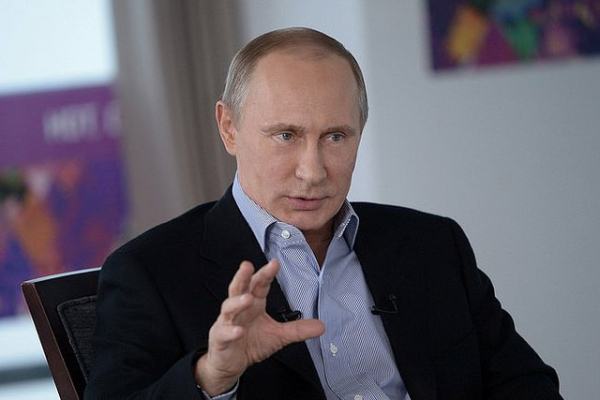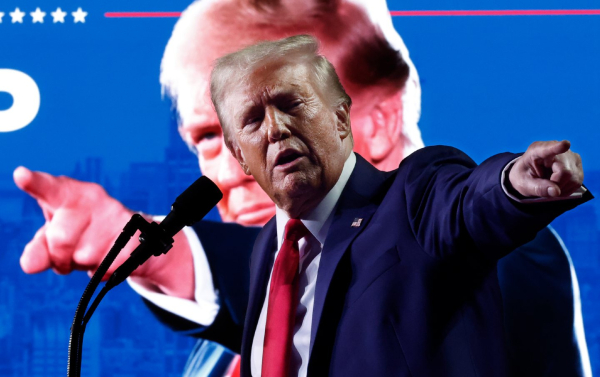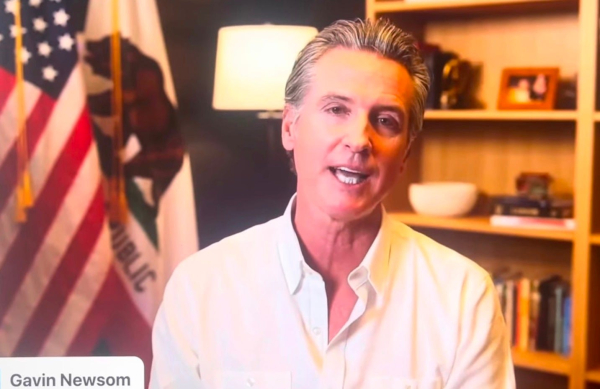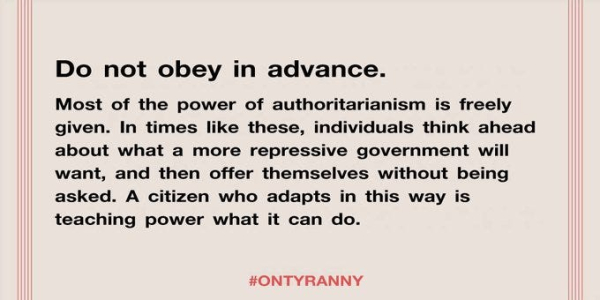Suche
Beiträge, die mit Future getaggt sind
https://drixpell.com/2024/11/20/a-new-beginning/
#drixpell #drix #course #3d #beginning #blender #software #design #designer #future #modeling #journey #blog #2024 #stage #project #love #style #art #digital #digitalart #3dmodeling #3dart #blender3d #visualart #graphic #graphicdesign #notice

A NEW BEGINNING…
DrixPell begins a new chapter. After creating several vector designs, I am now embarking on the next stage of continuing my studies in 3D design. I will continue with Blender, which is fantastic fo…DrixPell
https://thirdnarrative.org/
#Israel #Palestine #StandingTogether #thirdnarrative #respecteachother #ambiguitätstoleranz #beyond_ideology #peoplearepeople #future #listen #fightpolarization
Home - The Third Narrative
Some people regard Israel as evil. Others defend it as if it can do no wrong. As ardent opponents of the occupation who see no contradiction between being pro-Israeli and pro-Palestinian, we know that some of what Israel’s critics say is true.The Third Narrative
~ Jonathan Freedland
#Trump #fascism #cruelty #chaos #future
/1
https://www.theguardian.com/commentisfree/2024/nov/15/outrageous-appointments-donald-trump-anti-vaxxer
The list has twelve book titles.
#Trump #Republicans #fascism #future #disinformation
/22
https://www.altrightdelete.news/p/your-end-of-year-reading-list

Your End-Of-Year Reading List
A reading list of books worth reading or re-reading between now and Inauguration DayMelissa Ryan (Ctrl Alt Right Delete)
It turns out they likely have more levers of pressure — some of which are more powerful now, before Trump’s win is certified — and larger demands than most of the people who helped Trump get elected."
#Trump #Republicans #fascism #future #disinformation
/21
Trump is going to be a tool of Russia."
~ Marcy Wheeler
#Trump #Republicans #fascism #future #disinformation
/20
https://www.emptywheel.net/2024/11/12/russia-attempts-to-collect-its-winnings/

Russia Attempts to Collect Its Winnings - emptywheel
Russia has been engaged in a whole bunch of dick-wagging since Trump won the election. That's likely because the last time they helped Trump get elected, he deferred on and then failed to deliver his side of the bargain.emptywheel
Assigning blame is useless unless viable solutions are offered and implemented.
That said, here are my top three reasons why we lost the election:"
1. Racism
2. Sexism
3. Misinformation and disinformation
~ Pamela Hilliard Owens
#Trump #Republicans #fascism #future #disinformation
/19
https://wearespeaking.substack.com/p/that-was-then-this-is-now

That Was Then, This Is Now
In spite of it all, we do still have choices.Pamela Hilliard Owens (We Are Speaking)
#Trump #Republicans #fascism #future #disinformation
/15
#Trump #Republicans #fascism #future #disinformation
/14
That significant numbers instead see it as a vehicle to channel their fears and resentment-driven emotional instincts – beyond facts – is the existential challenge facing democracy today. ...
The tech revolution has changed everything."
~ Hardeep Matharu
#Trump #Republicans #fascism #future #disinformation
/13
https://www.bylinesupplement.com/p/the-psycho-social-techno-politics

The Psycho-Social-Techno Politics of ‘MAGA’ Trumps Democracy – And The Liberal Left Needs an Answer
Donald Trump’s second victory in the United States is a warning sign to democracies everywhere of the centrality of emotions – and their manipulation – in our politicsHardeep Matharu (Byline Supplement)
#Trump #Republicans #fascism #future #disinformation
/12
~ Scranton, Pennsylvania, voter Matt Wolfson
https://www.inquirer.com/politics/election/donald-trump-voters-pennsylvania-economy-fascism-20241111.html

Democrats kept calling Trump a fascist, but these Pennsylvania voters thought he could help them pay the bills
Even though Trump spewed violent and anti-democratic rhetoric, these voters think he can help the economy and their bottom line.Julia Terruso (The Philadelphia Inquirer)
This election has taught me that our country has made a fundamental shift in its core values."
~ Kareem Abdul-Jabbar
#Trump #Republicans #fascism #future #disinformation
/11
https://www.bloomberg.com/news/articles/2024-11-08/kareem-abdul-jabbar-diagnoses-trump-s-election-2024-win?accessToken=eyJhbGciOiJIUzI1NiIsInR5cCI6IkpXVCJ9.eyJzb3VyY2UiOiJTdWJzY3JpYmVyR2lmdGVkQXJ0aWNsZSIsImlhdCI6MTczMTA5OTQ4MiwiZXhwIjoxNzMxNzA0MjgyLCJhcnRpY2xlSWQiOiJTTU43SlhEV0xVNjgwMCIsImJjb25uZWN0SWQiOiJBRjJFNDMxQTgzRjk0OTU3QUIxNzg5NTgwOEU2Q0YxMiJ9.1wQ5ZazWs0U5MDzFBHG6fNv42NYi6pNgr4x9WwQOnw

Kareem Abdul-Jabbar Diagnoses Trump’s Election 2024 Win
Trump’s comeback reveals dark truths about the country.Kareem Abdul-Jabbar (Bloomberg)
#Trump #Republicans #fascism #future #disinformation
/10
#Trump #Republicans #fascism #future #disinformation
/9
~ Paul Krugman
#Trump #Republicans #fascism #future #disinformation
/7
https://www.nytimes.com/2024/11/11/opinion/trump-deportation-inflation-grocery-bills.html
Most Americans don’t want explicit autocracy. But many Trump supporters are open to it, and most of his voters will support or tolerate authoritarian policies and acts."
~ Will Saletan'
#Trump #Republicans #fascism #future #disinformation
/6
https://www.thebulwark.com/p/how-authoritarian-are-americans-trump-surveys-autocracy
Instead, they waste time on their typical and tired blame-the-Democrats assessments while ignoring the underlying causes that led to this fraught and dangerous era, a fascist is putting together the most extreme cabinet in modern American history. Good job, everybody."
#Trump #Republicans #fascism #future #disinformation
/5
~ Mary Trump
#Trump #Republicans #fascism #future #disinformation
/4
https://www.marytrump.org/p/the-media-want-to-blame-kamala-harris

The Media Want to Blame Kamala Harris
They should take a look in the mirrorMary L. Trump (The Good in Us by Mary L. Trump)
#Trump #Republicans #fascism #future #disinformation
/2
~ Rebecca Solnit
#Trump #Republicans #fascism #future #disinformation
/1
https://www.theguardian.com/world/2024/nov/09/authoritarians-like-trump-love-fear-defeatism-surrender-do-not-give-them-what-they-want
About the length of the working day
“...it would be wrong to think that it is possible to achieve such a serious cultural growth of the members of society without serious changes in the present state of labor. For this purpose it is necessary first of all to reduce the working day to at least 6 and then to 5 hours. This is necessary in order to give the members of society enough free time for a comprehensive education. For this it is necessary, further, to introduce compulsory polytechnic education, necessary for the members of society to be able to freely choose a profession and not be chained for life to one profession....
Joseph Stalin, “Economic Problems of Socialism in the USSR,” September 28, 1952”
After Stalin's death, the USSR leadership removed from the agenda the need to move to a six-hour day for the masses.
https://ru.wikipedia.org/wiki/Шестичасовой_рабочий_день
#USSR #russian #soviet #history #Stalin #communism #socialism #workerrights #humanrights #study for #future
Just 57 percent of 18- to 35-year-olds said democracy is preferable to any other form of government; 71 percent of older respondents said the same."
#Trump #fascism #cruelty #future
/12
"Now we have more evidence that the appeal of authoritarianism is on the rise, in America as well as globally."
He cites a poll last year by Open Society Foundations polling 36,000 people in 30 countries, which finds commitment to democracy strong but waning globally.
Two key findings that bode ominously for the future of democracy in America:
#Trump #fascism #cruelty #future
/11
https://www.americaamerica.news/p/what-i-wont-get-over-and-some-of

What I Won’t Get Over and (Some of) What to Do Now
As we grapple with where we are and the road aheadSteven Beschloss (America, America)
"We knew exactly what we were getting. And despite everything he’s done, millions of Americans would rather have a cruel, aging vulgarian than a competent Black woman become President. This is more a revelation of their lack of character than anything else. They chose to vote for him. No one forced them to do it."
#Trump #fascism #cruelty #future
/9
https://thelefthook.substack.com/p/america-shit-in-its-milk-but-the

America Shit In Its Milk, But The Rest Of Us Don't Have to Drink It
A small majority of Americans decided to destroy this country by re-electing a racist criminal. However, that doesn't mean the rest of us have to bend the knee or reach out and be conciliatory.THE LEFT HOOK with Wajahat Ali (The Left Hook with Wajahat Ali)
"I find most of the postmortem pontificating about why Democrats lost the presidential election unpersuasive.
The reason, not the only one but a major one, Democrats lost the presidential election is disinformation and misinformation super-charged by billionaires and Russia through a network of right-wing media outlets and institutions."
#Trump #fascism #cruelty #future
/8
https://jemartisby.substack.com/p/why-democrats-lost-the-2024-presidential
#Trump #fascism #cruelty #future
/7
Now that he is here, we deserve our fate, because the most fundamental truth about Trump’s reelection is that Trump was right about us."
#Trump #fascism #cruelty #future
/6
"America deserves everything it is about to get. ...
The conversations about who is to blame, the hand-wringing about who showed up and who failed the moment are largely academic and pointless."
~ Elie Mystal
#Trump #fascism #cruelty #future
/5
https://www.thenation.com/article/politics/trump-is-america-not-a-fluke/

There’s No Denying It Anymore: Trump Is Not a Fluke—He’s America | The Nation
The United States chose Donald Trump in all his ugliness and cruelty, and the country will get what it deserves.The Nation
But what Black people have to say isn't really important to a lot of us, right? Never has been. Never has been taken as seriously in the opinion pages of our major media outlets as the verbiage of any white person anywhere. Right? And it's never about racism or misogyny even when it's always about them.
#Trump #fascism #cruelty #future
/4
#Trump #fascism #cruelty #future
/3
Here's the response of a young Black leader, Baltimore mayor Brandon Scott, to these folks:
"It is really on my heart this morning to say that as a man, but more importantly as a Black man, that this country does not deserve Black women or Black people, but specifically Black women."
#Trump #fascism #cruelty #future
/2
#Trump #fascism #cruelty #future
/1
https://www.wonkette.com/p/democratic-state-leaders-prepare?

Democratic State Leaders Prepare The Resistance
From governors to AGs to mayors, loins are getting girded.Marcie Jones (Wonkette)
As the name suggests, journalism from and for and beyond the continent. Great newsletter, topical, thoughtful, modern, critical - but judge for yourselves. And if you can, consider supporting. Journalists shouldn't be payed by billionaires and oligarchs
https://www.europeancorrespondent.com/
#journalism #europe #theeuropeancorrespondent #EuropeanCorrespondent #media #eupol #politics #future #hope #truthseeker
I'm disinterested in the usual circular firing squad."
#Trump #Republicans #fascism #cruelty #future
/3
#Trump #Republicans #fascism #cruelty #future
/2
~ A.R. Moxon
But the problem, let's remind ourselves, is the Democratic party. The problem is not the voters who, told that one party will usher in fascism, went right ahead and voted for that party — choosing to usher in fascism.
#Trump #Republicans #fascism #cruelty #future
/1
https://www.the-reframe.com/fighting-in-the-dark/?ref=the-reframe-newsletter

Fighting In The Dark
Doing things fascists can't do. Not doing things fascists want us to do. Doing thing fascists don't want us to do. Refusing the fascist offer.A.R. Moxon (The Reframe)
https://texasobserver.fundjournalism.org/donate
#journalism #Media #Texas #politics #USpol #fundraiser #nonprofit #future #immigration #news
Join | Texas Observer
Texas Observer is supported by people like you. Support Texas Observer today.texasobserver.fundjournalism.org
And, more than 50% of Americans saw it and said that’s exactly what they wanted.
I don’t have numbers yet, but I anticipate the white evangelical vote will be over 80%, white Catholic and mainline over 60%.”
~ Kristin Du Mez
#fascism #future #cruelty #Christians
/3
https://open.substack.com/pub/kristindumez/p/this-time-is-worse

This time is worse
Well friends, we’ve turned a page, but the next chapter isn’t what we’d hoped.Kristin Du Mez (Du Mez CONNECTIONS)




